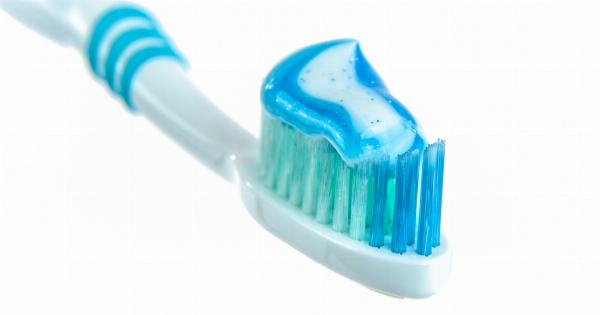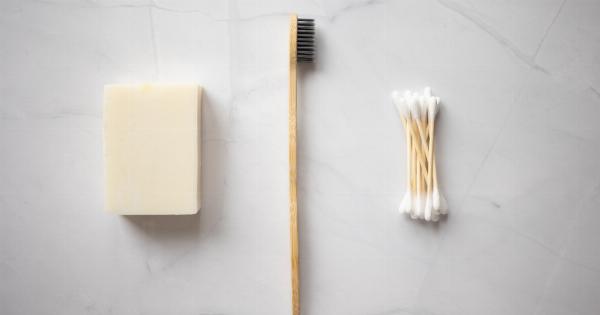When it comes to dental hygiene, most of us are aware of the importance of using a toothbrush regularly. However, it is equally essential to replace our toothbrushes periodically.
Many people tend to use their toothbrushes until they are completely worn out or broken. Unfortunately, using an old toothbrush can have several hair-raising effects on our oral health. In this article, we will discuss these effects and shed light on why it is crucial to replace our toothbrushes regularly.
1. Reduced Effectiveness in Cleaning
Over time, the bristles on a toothbrush wear out and become frayed or bent. This significantly reduces the effectiveness of the toothbrush in cleaning our teeth and gums.
The bristles lose their original flexibility and cannot reach all the nooks and crannies of our teeth, leading to incomplete cleaning. As a result, plaque and bacteria can build up, increasing the risk of cavities, gum disease, and bad breath.
2. Accumulation of Bacteria
An old toothbrush becomes a breeding ground for bacteria. Every time we brush our teeth, the bristles remove food particles, plaque, and bacteria from our mouth.
These microorganisms can remain trapped between the bristles, even after rinsing the toothbrush with water. Over time, the bacteria multiply and thrive on the moist bristles. Using an old toothbrush reintroduces these bacteria into our mouth, potentially leading to infections and oral health issues.
3. Risk of Cross-Contamination
When multiple toothbrushes are stored together, the bacteria from one toothbrush can transfer to others. If you share a toothbrush holder with someone else or keep your toothbrushes in close proximity, the risk of cross-contamination increases.
Using an old toothbrush that has been contaminated can introduce harmful bacteria into your mouth, potentially causing infections or illnesses.
4. Harm to Gums and Tooth Enamel
Old toothbrushes with frayed or damaged bristles can be harsh on the gums and tooth enamel. The rough bristles can cause irritation, bleeding, and even damage to the delicate gum tissue.
Additionally, using a worn-out toothbrush can lead to enamel erosion. The weakened bristles may not be gentle enough to clean the teeth effectively without causing harm.
5. Ineffective Plaque Removal
One of the primary purposes of toothbrushing is to remove plaque—the sticky film that forms on our teeth and harbors harmful bacteria. Plaque removal is essential for preventing tooth decay and gum disease.
However, using an old toothbrush can compromise the removal of plaque. The worn-out bristles cannot effectively dislodge the plaque from the tooth surfaces, allowing it to accumulate and harden into tartar, which can only be removed by a dental professional.
6. Reduced Longevity of Dental Work
If you have dental crowns, fillings, or other dental work, using an old toothbrush can have detrimental effects. The damaged bristles can cause scratches or wear down the materials used in dental restorations.
This may lead to early deterioration or compromise the longevity of these dental treatments.
7. Worsening of Existing Oral Health Conditions
If you already have oral health conditions such as gingivitis or sensitive gums, using an old toothbrush can aggravate these issues.
The worn-out bristles can further irritate and damage the inflamed gum tissue, delaying the healing process and worsening the condition.
8. Unpleasant Odors
An old toothbrush that harbors bacteria can develop an unpleasant odor. Even after rinsing the toothbrush, the odor-causing bacteria may persist.
Brushing with a smelly toothbrush can leave an undesirable taste in your mouth and make the overall brushing experience unpleasant.
9. Overall Oral Health Compromised
Using an old toothbrush undermines your overall oral health. With reduced cleaning efficiency, increased bacterial load, and the potential for cross-contamination, your oral health becomes compromised.
You may experience an increased risk of cavities, gum disease, bad breath, and other oral health problems.
10. Poor Aesthetics
Lastly, using an old toothbrush can affect the appearance of your toothbrushing routine. Worn-out bristles may no longer effectively remove surface stains, causing your teeth to appear dull or discolored.
A fresh toothbrush with properly functioning bristles can help maintain the aesthetic appeal of your smile.



























